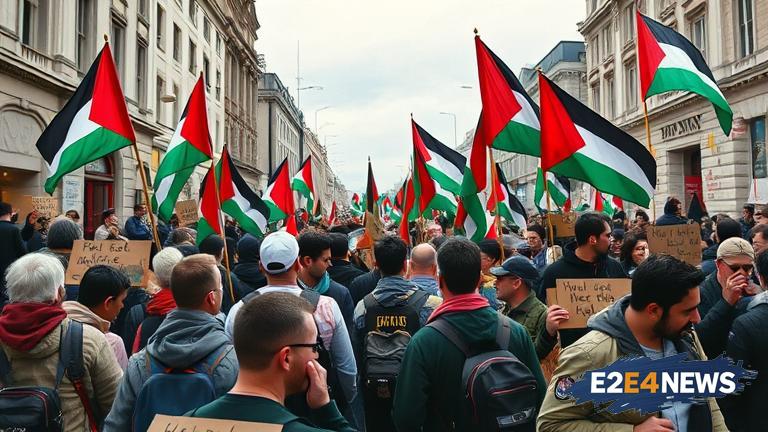Protests have erupted across the UK in support of the banned group Palestine Action, resulting in the arrest of more than 70 individuals. The demonstrations, which took place in various cities, were organized to show solidarity with the group, which was banned by the UK government due to its alleged ties to terrorism. The protests were largely peaceful, but some clashes were reported between demonstrators and police. The UK government’s decision to ban Palestine Action has been met with widespread criticism, with many arguing that it infringes upon the right to free speech and assembly. The group, which has been active in the UK for several years, has been accused of promoting anti-Semitic and extremist views. However, its supporters argue that it is a legitimate advocacy group that seeks to raise awareness about the plight of Palestinians. The protests were attended by a diverse range of individuals, including students, activists, and community leaders. Many of those arrested were charged with public order offenses, including obstructing a highway and failing to disperse when instructed to do so by police. The UK government has defended its decision to ban Palestine Action, citing concerns about national security and public safety. However, critics argue that the ban is an overreach of government power and will only serve to drive the group’s activities underground. The protests have sparked a wider debate about the balance between free speech and national security in the UK. Some have argued that the government’s actions are disproportionate and will have a chilling effect on legitimate political activism. Others have expressed concerns about the potential for extremist groups to exploit the situation and promote their own ideologies. The UK’s counter-terrorism laws have been criticized for being overly broad and vague, allowing for the suppression of legitimate dissent. The case has also raised questions about the role of social media in promoting extremism and the need for greater transparency and accountability in government decision-making. As the situation continues to unfold, it remains to be seen how the UK government will respond to the protests and the ongoing debate about Palestine Action’s status. The international community is also watching closely, with many expressing concerns about the implications of the ban for global human rights and freedom of expression. The UK’s actions have been condemned by several human rights organizations, which argue that the ban is a clear example of government overreach and a threat to democratic values. In response to the criticism, the UK government has stated that it is committed to protecting national security and public safety, while also upholding the rights of citizens to free speech and assembly.
